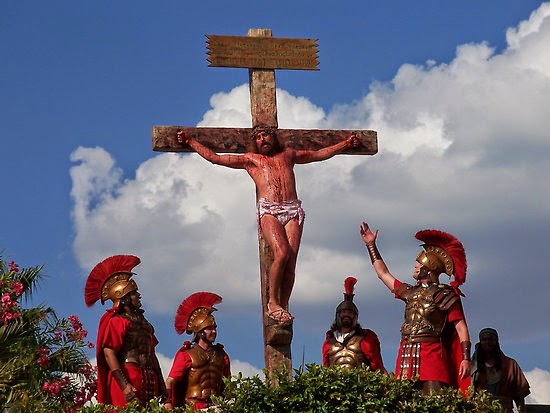How Long Did Noah Live?
Noah is one of the most important people in the Bible. He is known for being righteous and for saving people and animals from the flood.
According to the Bible, he lived for 950 years, which makes him one of the longest-living people in history.
In this blog, we’ll talk about what Noah’s long life means, what might have caused it, and how it fits into the larger biblical timeline.

Noah’s Story in the Bible
Noah is introduced in the Book of Genesis as a descendant of Adam, the first man. The Bible describes him as a righteous man who found favor in the eyes of God. God was disappointed with the wickedness of humanity and decided to cleanse the earth with a flood, but he chose to spare Noah and his family.
God instructed Noah to build an ark and to gather two of every kind of animal, male, and female, to survive the flood.
After the flood, Noah, his family, and the animals left the ark and started a new life on earth. The Bible describes Noah as a farmer and as the father of three sons: Shem, Ham, and Japheth. Noah’s descendants would go on to populate the earth.
Significance of Noah’s Lifespan
Noah’s age is significant in the context of the biblical narrative for several reasons. First, it highlights the extraordinary nature of the events surrounding the flood. The fact that Noah was able to survive for nearly a millennium makes his story even more remarkable.
Second, it underscores the importance of Noah’s role in God’s plan for humanity. His long life allowed him to witness and participate in the early stages of human civilization and to pass on his knowledge to his descendants.
Finally, Noah’s lifespan is significant in the genealogy of the Bible. According to the Book of Genesis, Noah was the tenth generation of Adam. His descendants included Abraham, Isaac, Jacob, and ultimately Jesus Christ. His age is a key factor in calculating the timeline of the Bible and the generations that followed.
Possible Explanations for Noah’s Long Life
The Bible does not offer a definitive explanation for why Noah lived for 950 years. However, there are several theories that have been proposed. One theory is that the ages of biblical figures were exaggerated to emphasize their importance and to highlight the power of God.
Another theory is that the environment in which these figures lived was more conducive to longevity. This theory suggests that the pre-flood world had a different climate or atmosphere that allowed humans to live longer.
Another theory is that the biblical figures’ lifespans were a result of genetic mutations or adaptations. Some scientists have suggested that certain genetic mutations could extend lifespans and that these mutations were more common in the past. However, this theory remains controversial and has not been widely accepted.
Lastly, some religious experts think that the length of life of biblical figures shows how close they were to God and how pure their spirits were. According to this theory, the more righteous a person was, the longer they lived.
Noah’s Lifespan in the Context of the Bible
Noah’s lifespan is just one of many elements in the biblical timeline. The Book of Genesis describes the lives of several other figures who lived for centuries, including Adam, Seth, Methuselah, and Enoch. However, Noah’s lifespan is notable for its role in the Bible’s genealogy.
The Bible describes the generations that followed Noah, including Abraham, Isaac, and Jacob. These figures are considered patriarchs of the Jewish people and are central to the narrative of the Old Testament. Their stories are also significant in the context of Christianity, as they are seen as precursors to the birth of Jesus Christ.
Noah’s Lifespan and Modern Science
Noah’s lifespan is an interesting topic of discussion for both religious scholars and scientists. While the scientific community has not been able to fully explain the extraordinary ages of biblical figures, research into aging and longevity has made significant strides in recent years.
Some scientists believe that the key to extending lifespan lies in understanding the aging process at the cellular level. As we age, our cells undergo changes that make them less effective at repairing damage and fighting disease. By understanding these changes, scientists may be able to develop new treatments or therapies that can slow down or even reverse the aging process.
Other researchers are exploring the potential benefits of lifestyle changes, such as exercise, diet, and stress reduction, in promoting longevity. While there is no single “magic bullet” that can guarantee a longer life, there is growing evidence that a combination of healthy habits and medical interventions can help to extend lifespan and improve the quality of life in old age.
Conclusion
Noah’s lifespan is a fascinating topic of discussion that raises many questions about the nature of human existence and the mysteries of the universe. While we may never know for certain why Noah lived for 950 years, his story continues to inspire and intrigue people of all faiths and backgrounds.
Whether we view Noah’s lifespan as a testament to God’s power, a reflection of the pre-flood environment, or simply an exaggeration of biblical figures, we can learn from his example of perseverance, faith, and dedication to his family and community.
As we continue to explore the secrets of longevity and aging, we can look to figures like Noah for inspiration and guidance as we strive to live long, healthy, and fulfilling lives.

Sangtea Hmar is a passionate leader of the Youth Christian Fellowship at the Electric Vengthlang Presbyterian Church in Aizawl, Mizoram, India. He is the owner of Christiantone.com and is committed to spreading the word of God. He loves to mentor youth and help them grow in their faith.






